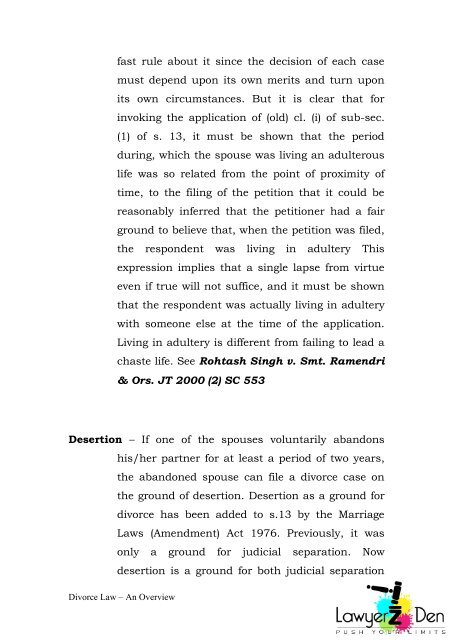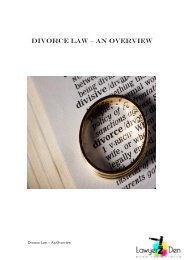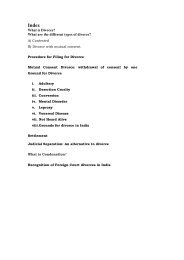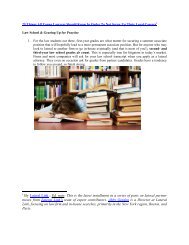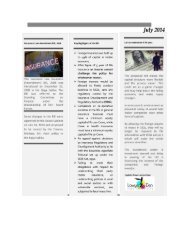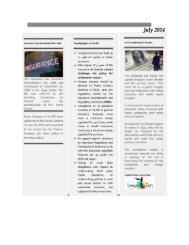DIVORCE LAW
Create successful ePaper yourself
Turn your PDF publications into a flip-book with our unique Google optimized e-Paper software.
fast rule about it since the decision of each case<br />
must depend upon its own merits and turn upon<br />
its own circumstances. But it is clear that for<br />
invoking the application of (old) cl. (i) of sub-sec.<br />
(1) of s. 13, it must be shown that the period<br />
during, which the spouse was living an adulterous<br />
life was so related from the point of proximity of<br />
time, to the filing of the petition that it could be<br />
reasonably inferred that the petitioner had a fair<br />
ground to believe that, when the petition was filed,<br />
the respondent was living in adultery This<br />
expression implies that a single lapse from virtue<br />
even if true will not suffice, and it must be shown<br />
that the respondent was actually living in adultery<br />
with someone else at the time of the application.<br />
Living in adultery is different from failing to lead a<br />
chaste life. See Rohtash Singh v. Smt. Ramendri<br />
& Ors. JT 2000 (2) SC 553<br />
Desertion – If one of the spouses voluntarily abandons<br />
his/her partner for at least a period of two years,<br />
the abandoned spouse can file a divorce case on<br />
the ground of desertion. Desertion as a ground for<br />
divorce has been added to s.13 by the Marriage<br />
Laws (Amendment) Act 1976. Previously, it was<br />
only a ground for judicial separation. Now<br />
desertion is a ground for both judicial separation<br />
Divorce Law – An Overview


